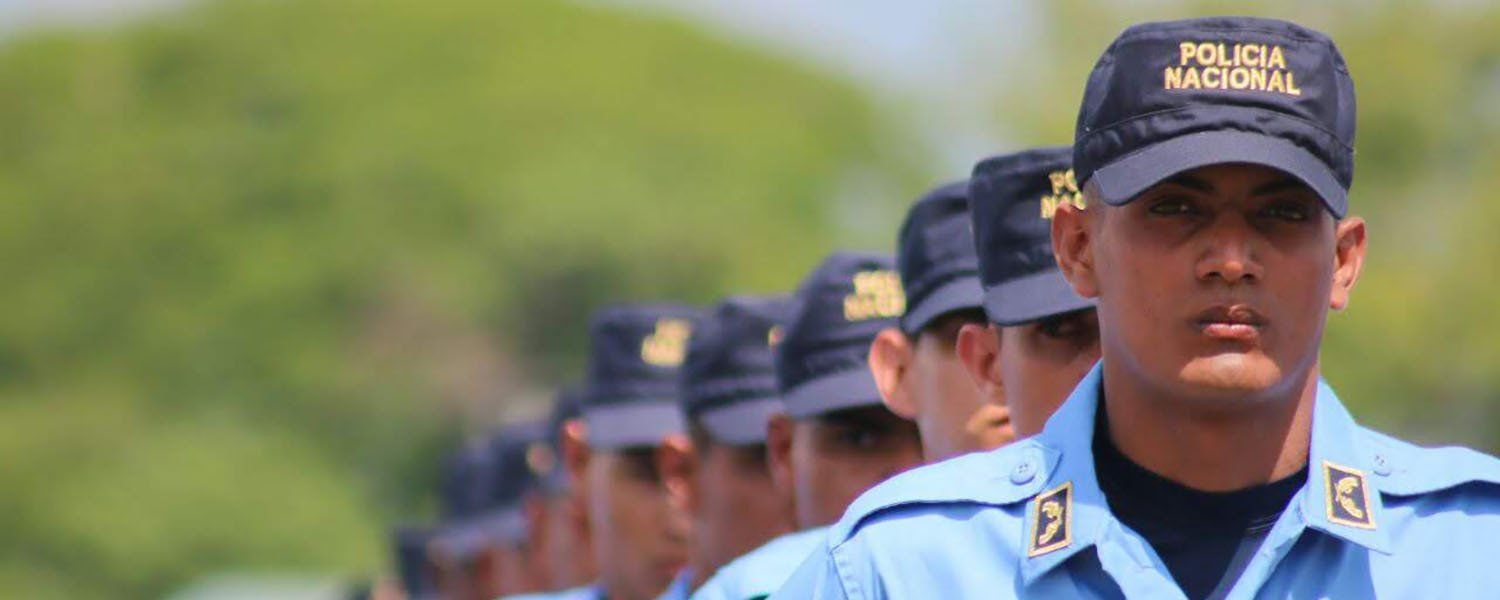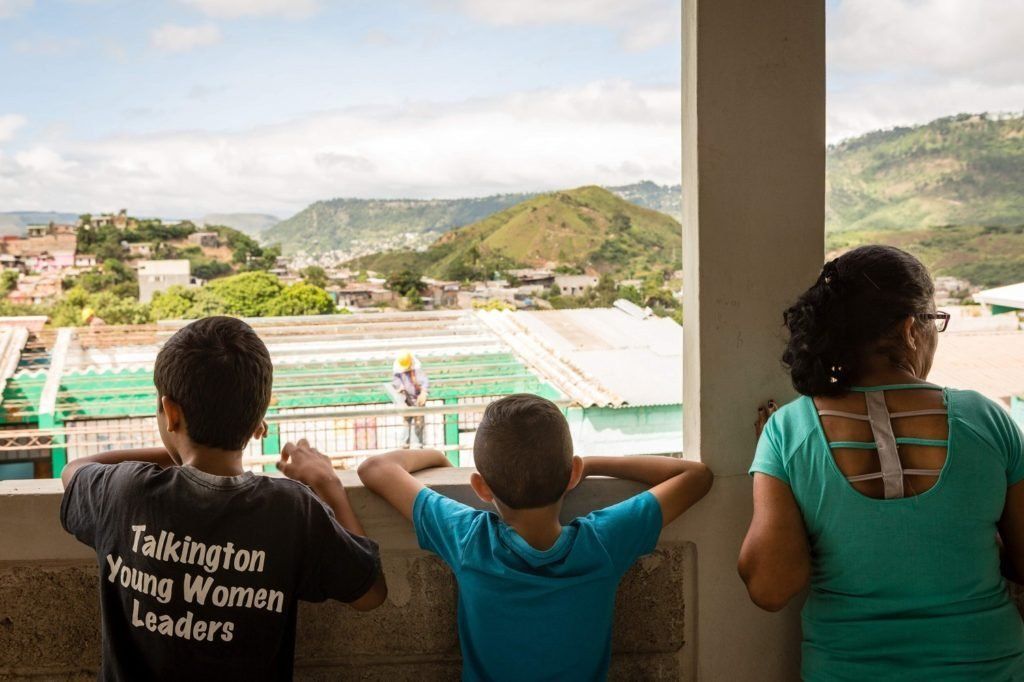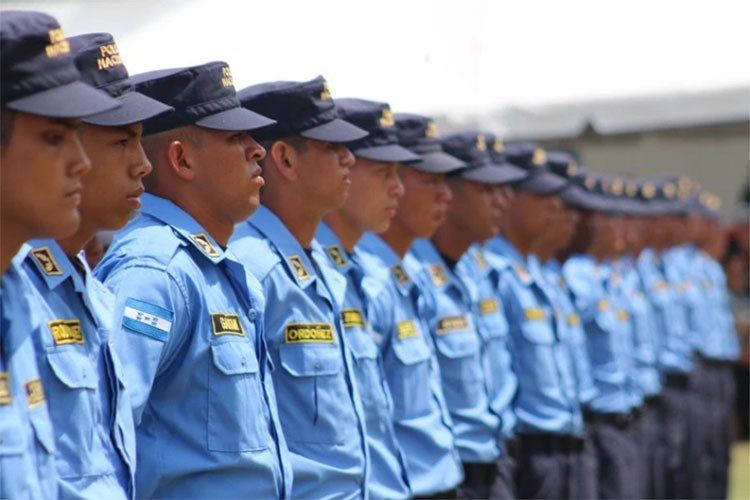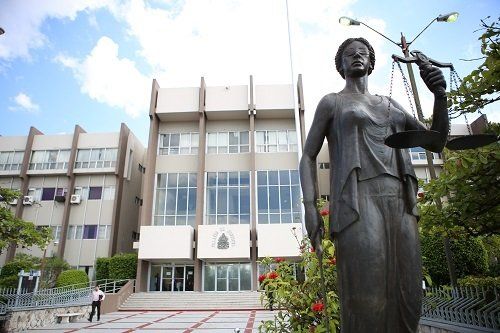In addition to our work reforming the National Police, ASJ is working on reforms to the Attorney General’s Office and the Judiciary branch to make access to justice quicker and more reliable. The criminal justice system is often so overloaded with cases that the majority of cases are left in impunity. Through changes in the case management, these institutions have dramatically increased the number of cases processed – lowering impunity, holding criminals accountable for their crimes, and strengthening rule of law. In one unit where these reforms were implemented, there was a 36% increase in convictions, and case backlogs decreased from over 1,400 to just 50 in nine months. Now, prosecutors and judges are better able to respond to criminal cases, helping more people get access to justice.
SECURITY & JUSTICE
Honduras has one of the highest homicide rates in the world, and 87% of those murders will never see a conviction. High rates of violence and impunity put poor Hondurans at risk of being victims and prevent them from accessing justice. In this context, we make peace possible at both the community and national level by walking alongside victims of violence and advocating for national reforms.
Amidst Honduras’ high rates of violence and impunity, police and judicial systems suffer from corruption and inefficiency – meaning that they are often unwilling or unable to bring about justice. Meanwhile, witnesses and victims’ families are too fearful to come forward, creating a culture of mistrust between communities and the local authorities. This lack of trust creates a vicious cycle of violence and impunity, making it
nearly impossible for Hondurans to get justice in cases of violence.
Since 2005, we’ve been working in Honduras’ most vulnerable communities to walk alongside both victims and local law enforcement to do justice. ASJ assigns a three-person team of a lawyer, investigator, and Christian psychologist to individual homicide cases. This team works to ensure that the case is investigated and brought to trial, while also providing protection to witnesses who would otherwise be too scared to testify. Additionally, ASJ gives psychological support to victims’ family members, helping them heal from the trauma they’ve experienced.
This work has shown that the justice system can work on behalf of even the most vulnerable – in one neighborhood where we work, we saw a 75% decrease in homicides in just four years. This program has saved over 600 lives, making Honduras’ most violent communities safer and creating opportunities for Hondurans to live securely. Given the success in the communities where ASJ has worked, the National Police and Attorney General’s Office are currently working with ASJ to replicate the model across the country.
Interested in how this team makes it possible to solve homicide cases? Check out our How to Solve a Murder in Honduras series.
It is estimated that one out of every 13 children in Honduras will be assaulted or abused – one of the most harmful and traumatizing crimes. Sadly, it is also one of the least-reported crimes due to fear, stigma, and lack of education. Even when these cases do go to trial, they rarely earn a conviction – the Attorney General’s Office estimates that less than 1% of all cases will earn a conviction. This means that few perpetrators face consequences for their abuse, and many children remain vulnerable to becoming victims of sexual abuse.
ASJ provides holistic rehabilitation services to victims of sexual abuse. First and foremost, we provide psychological counseling to help victims and their families heal from the trauma they have experienced. ASJ also provides legal and investigative support to ensure that perpetrators are brought to justice. We have walked alongside over 300 cases of sexual abuse, which are 30 times more likely to result in a conviction. We’ve also provided psychological services to 2,000 victims and family members. This work makes it possible to break cycles of violence by holding perpetrators accountable and giving victims the justice they deserve.
Beyond our work with individual cases, we are also working to prevent the occurrence of sexual abuse. Through a partnership with the Secretary of Education, we have provided prevention training to over 18,000 students and 700 teachers – teaching them how to recognize signs of sexual abuse and how to get help if they are in a vulnerable situation. By providing education on sexual abuse, we’re both providing tools to stop it from occurring and helping to break down stigma so that victims are willing to report it.
Advocating for Police Reform
In addition to our work at the community level, we also advocate for reforms that will impact access to justice across the country. ASJ is one of the founding members of the Alliance for Peace and Justice, a coalition of over 100 civil society organizations, the Catholic and Evangelical churches, and Honduras’ largest university. Together, the coalition advocates for justice system reforms to address Honduras’ high rates of violence and impunity.
One of Honduras’ biggest problems in security was corruption within the police. The Honduran police were one of the least trusted government institutions, with only 30% of the Honduran population saying they trust the police. Police were often involved in organized crime and drug trafficking, meaning they end up protecting the interests of criminals rather than victims. Beyond the problem of crime and corruption, the Honduran police suffered from lack of sufficient personal, having only half the number of officers per citizen that a country should have.
In 2016, the Honduran government decided it was finally time to deal with the problems crippling the police. They appointed a Police Purge Commission to purge and transform the police force, asking two of ASJ’s leaders to serve on the Commission. In just three years, the Commission helped remove 5,600 unqualified and corrupt police officers from a force of 13,000, including six of nine generals. Meanwhile, the Commission oversaw the revamp of a new 12-month training program (in place of the previous 3-month training program), and since then have hired 9,800 newly trained officers, increasing the capabilities of the police force. A study by the Wilson Center found this police purge effort to be beyond comparison in Latin America, having successfully implemented reforms that many thought were impossible. Ultimately, these reforms are helping transform the police into an institution that protects the Honduran people.
REFORMING JUSTICE SYSTEMS












